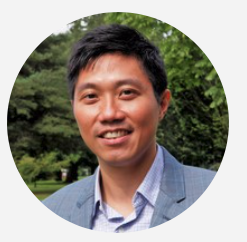Welcoming new Fellows to HKAH
May 25, 2020
The Hong Kong Academy of the Humanities would like to extend a warm welcome to six new Fellows and Early Career Fellows, who were elected at the Academy's 2020 AGM on May 7th. Learn more about the new HKAH Fellows below.
Prof. S. D. CHAN (陳瑞端)
Prof. S. D. CHAN (陳瑞端) is Professor of the Department of Chinese and Bilingual Studies of the Hong Kong Polytechnic University. She has taken up several key administrative duties during her past thirty years of service at PolyU, including Head of the Chinese Language Centre, Head of the Department of Chinese and Bilingual Studies, and Associate Dean of the Faculty of Humanities.
Prof. Chan’s main research area is in Chinese language teaching and assessment for both native and non-native learners. She has also been very active in serving the Hong Kong education sector by sitting on numerous government committees in relation to language education, including serving as member of the Standing Committee on Language Education and Research (an advisory body on language policy to the HKSAR government). In July 2015, Prof. Chan was awarded the Medal of Honour by the HKSAR government for her valuable contribution made to the HK education sector, especially on language education and research.
Read more about Prof. Chan here.
Prof. Jette G. HANSEN EDWARDS
Prof. Jette G. HANSEN EDWARDS is Professor of Applied English Linguistics and Chair of the Department of English at The Chinese University of Hong Kong. Originally from Denmark and educated in the United States, she has lived in Hong Kong since 2003.
Prof. Hansen Edwards has a diverse range of research interests including second language/multilingual phonological acquisition and use and world Englishes. At the heart of her work is challenging the hegemony of English as a global language in order to empower multilingual learners and users of English.
She has made a significant contribution to the Humanities in Hong Kong through her scholarship on multilingual learners and users of English, speech intelligibility, and Hong Kong English. She is also a Humanities Panel Member for the Research Assessment Exercise (RAE) 2020, University Grants Council (UGC). An avid swimmer, Prof. Hansen Edwards lives in Shek O Village with her husband and two children. She sings with The Hong Kong Women’s Choir, a non-profit choir that fund raises for local Hong Kong charities.
Read more about Prof. Hansen Edwards here.
Prof. LI Ping (李平)
Prof. LI Ping (李平) currently serves as the Chair Professor of Neurolinguistics and Bilingual Studies and Dean of Faculty of Humanities at the Hong Kong Polytechnic University. Prior to joining PolyU he was Professor of Psychology and Information Sciences at the Penn State University. He previously taught at the Chinese University of Hong Kong and the University of Richmond in the U.S.
The goal of his research is to understand the neuro-computational basis of language and cognition, and the relationships between language, culture, brain, and technology. His recent work uses brain-based, cyber-enabled and data-intensive methods to study language acquisition, bilingualism, and reading comprehension.
Prof. Li Ping also serves as the Editor-in-Chief of Brain and Language and Associate Editor of Frontiers in Psychology: Language Sciences. He previously served as Editor of Bilingualism: Language and Cognition and Journal of Neurolinguistics, as President of Society for Computers in Psychology, and Program Director of Cognitive Neuroscience and of Perception, Action and Cognition at the U.S. National Science Foundation.
Read more about Prof. Li here.
Prof. Greg THOMAS
Prof. Greg THOMAS is a Professor at The University of Hong Kong. He earned his PhD in 19th-century French art history in 1995 from Harvard University, then taught at Purdue in the United States for four years before joining HKU's Department of Fine Arts in 1999.
He has published two scholarly books – one on landscape painting and ecology in France, and one on depictions of childhood in Impressionism – and is currently preparing a 3rd book on European artistic interactions with China, focused on the imperial palace of Yuanming Yuan.
At HKU, he teaches courses on modern European and American art and architecture, and European interactions with Asia. He also teaches a very popular introductory survey of western art, and recently led the development of Hong Kong’s first Masters program in art history.
Read more about Prof. Thomas here.
Dr. Harry Yi-Jui WU (吳易叡)
Dr. Harry Yi-Jui WU (吳易叡) is currently Director and Assistant Professor of the Medical Ethics and Humanities Unit, Li Ka Shing Faculty of Medicine, The University of Hong Kong. Before becoming a historian, he was trained as a physician in Taiwan. He obtained a DPhil in Modern History from The University of Oxford in 2012 and has since then devoted himself to research and education in medical humanities in Singapore and Hong Kong.
He has written on the transnational history of psychiatry related to the WHO’s mental health projects, the formation of psychiatric disciplines in Taiwan, China and Hong Kong and co-edited several related special issues. His monograph, Mad by the Millions: Mental Disorders in the Age of Scientific Internationalism, Experts and Technology, will be soon published by MIT Press. Currently, he is writing the history of mental health along the development of trade ports in East and Southeast Asia between the mid-19th and mid-20th centuries, focusing on the relationship between migration and empires’ networks.
Dr. ZHAN Fangqiong (詹芳琼)
Dr. ZHAN Fangqiong (詹芳琼) received her Ph.D. from Stanford University in Chinese linguistics, and currently is an assistant professor in the department of Linguistics and Translation at City University of Hong Kong. Her research interests include diachronic construction grammar, grammaticalization and constructionalization.
Dr. Zhan is currently one of the leading young scholars working on the application of the theoretical framework of diachronic construction grammar and constructional changes to the Chinese languages. Her research contributes a more detailed understanding of how Chinese languages evolve over time. As most of the earlier constructional studies focus on European languages, her work of how Chinese constructions have developed contributes to a cross-linguistic typological investigation of language development in human societies.






